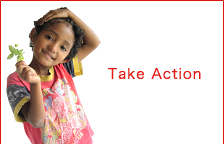SHARE
Services for the Health in Asian & African Regions (SHARE) = SHARE is a citizen sector organization (NGO) that engages in international cooperation mainly through providing health service.
HOME > Activity > Timor Leste
- What We Do TOP
- Cambodia
- Project Now
- Project Past
- Timor Leste
- Project now
- Training for Health Care Education
- Monitoring and Follow-up of Participants in the Training
- Project Past
- Japan
- Health Projects in Japan
- Free Consultation
- Telephone Consultation on Medical Care
- Interpreter Training and Dispatch Service for Non-Japanese TB Patients
- Support for HIV-positive Migrants in Japan
- Campaigning for Raising Awareness About AIDS for Thai People
- Building Awareness
- Activities in Japan
- Domestic Efforts
- Understanding of HIV/AIDS
- Emergency Relief
Project Past

On August 30, 1999, 80% of the electorate in Timor-Leste indicated their disapproval of the autonomous government under the Indonesian rule. People longed to win "independence" by peaceful means, but pre-organized violent acts that occurred after the announcement of the referendum results brought about tragedies and disasters beyond imagination of the most people of this small island country. According to the report of the Office of the United Nations High Commissioner for Human Rights (UNHCR), 75% of the people were forced to evacuate their homes, many lives were taken, and almost all the public facilities including medical institutions were destroyed or made useless within several weeks after the announcement. International communities' reactions to this tragedy were speedy and diverse. In September, 1999, the UN Security Council approved the dispatch of International Force for East Timor (INTERFET). In October, the UN Security Council established the United Nation's Transitional Administration in East Timor(UNTAET), and rebuilding of the foundations of people's lives began gradually under the leadership of UNTAET and the National Council of Timorese Resistance (CNRT). During these times, many SHARE members and supporters indicated their strong support that "this was the work cutout for SHARE", and in October 1999, SHARE dispatched physicians and midwives and conducted the on-site study.
Needs Assessment (October to November, 1999)
With cooperation from People's Peace Relief Project (PPRP), a physician and a midwive were dispatched for 2 to 3 weeks respectively. Needs and capacity of the relief were studied, and the relief project decided.
Semi-urgent Support (January - March, 2000)
Midwives and physicians were sent to Bairo Pite Clinic in Dili、the capital, to give technical support for mobile medical care and drugs, and the physicians examined patients and gave guidance to medical students whose studies had to be suspended. The midwives gave training to local birth assistants.
Project Needs Assessment (February to April, 2000)
During the process of riot control and start of restoration, SHARE probed the possibilities of extending its projects to areas with more urgent needs to meet the country's needs for restoration/rebuilding programs. In February, 2000, a skilled nurse was dispatched to conduct a survey for determining the project site, consulted with UNTAET and NGOs already active in the area, and SHARE decided to launch the campaign for disease prevention in Ermera District.
Primary Health Care Project (April 2000 to March 2002)
With an emphasis on support of restoration of public medical institutions in Ermera District (Railako and Ermera Sub-districts), we supported the training of nurses and the management control of health centers. The community health promotion programs mostly for mothers and children and the logistics support to the District Public Health Bureau were implemented (loaning of vehicles and motor bikes to be used as ambulances).


